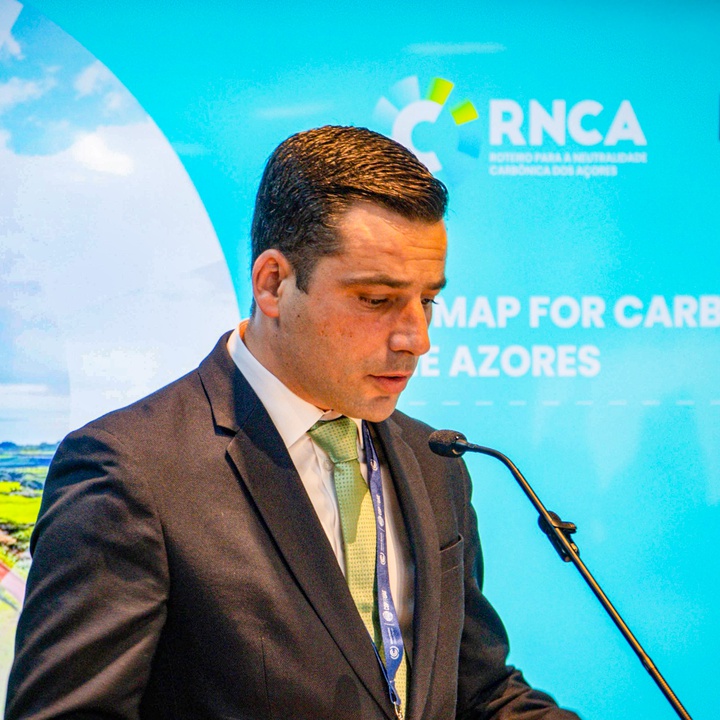Text size:
News

Government of the Azores presents the Region's Roadmap for Carbon Neutrality at COP28
Dec. 4, 2023
The Regional Secretary for the Environment and Climate Change, Alonso Miguel, attended the 28th Conference of the Parties (COP28) of the United Nations Framework Convention on Climate Change (UNFCCC) this Sunday in Dubai, where he presented the Roadmap for Carbon Neutrality of the Azores.
“It is a great pleasure for the Azores to take part for the first time in the COP, which is the world's largest conference on climate change, and which allows us to present the Roadmap for Carbon Neutrality of the Azores and all the work carried out in the Region in terms of mitigating and adapting our islands to the effects of climate change, which places us in a position of reference in this area, and a pioneer in terms of island and archipelagic realities,” he emphasised.
“On the other hand, it also gives us a unique opportunity to share knowledge and establish contact with experts and world leaders in terms of mitigating and adapting to climate change, as well as to learn about the innovative solutions being developed around the world so that, with the necessary adaptations, we can implement them in the Region,” he also explained.
The Regional Secretary clarified that “although the Azores’ contribution to the phenomenon of global warming is residual”, this does not remove the Region’s responsibility to contribute to its mitigation.
He explained: “although we are more victims of this phenomenon than contributors to its occurrence, this does not mean that we are not affected by its effects, which jeopardise the safety of people and property and cause enormous material and financial damage, as was the case with Hurricane Lorenzo, which left a trail of destruction and huge losses in the Archipelago, estimated at around 330 million euros”.
“That's why the 13th Regional Government of the Azores has made mitigating and adapting to climate change a strategic axis of its action, and a wide range of initiatives are underway in the Region in this area, with emphasis on very considerable public investment in decarbonising the energy and transport sectors, to the tune of hundreds of millions of euros over the next few years,” he said.
Alonso Miguel also emphasised other initiatives, such as the “implementation of the Regional Climate Change Programme, the development of risk mapping for climate change mitigation and adaptation, the project to improve knowledge and restoration of peatlands, which are excellent carbon sinks, and the creation of the Legal and Financial Regime to Support Climate Emergencies, to support populations affected by damage and property losses caused by extreme weather events.”
“Of course, the Roadmap for Carbon Neutrality of the Azores, which we have presented here today, aims to establish a strategic vision and explore cost-effective, technologically feasible and economically viable trajectories in various economic and demographic growth scenarios, in order to achieve carbon neutrality by 2050,” he emphasised.
The Regional Secretary pointed out that "in addition to strategically framing all these initiatives underway in the Region, the Roadmap presents a set of proposals to achieve the decarbonisation envisaged for each of the sectors identified as being most relevant, specifically the energy, transport, agriculture, forestry and other land use, and waste and wastewater sectors."
Alonso Miguel added that in order to achieve the goal of carbon neutrality by 2050, the Azores will have to promote a substantial increase in the production and use of renewable energies, an increase in energy efficiency, the electrification of transport and the use of biofuels and hydrogen, as well as changes in livestock farming, especially with animal feed supplementation, in order to reduce methane emissions, and promote a feasible reduction in the number of dairy cows from 2040 onwards, as well as an increase in carbon sinks by afforesting around 10% of the Azores' area.

